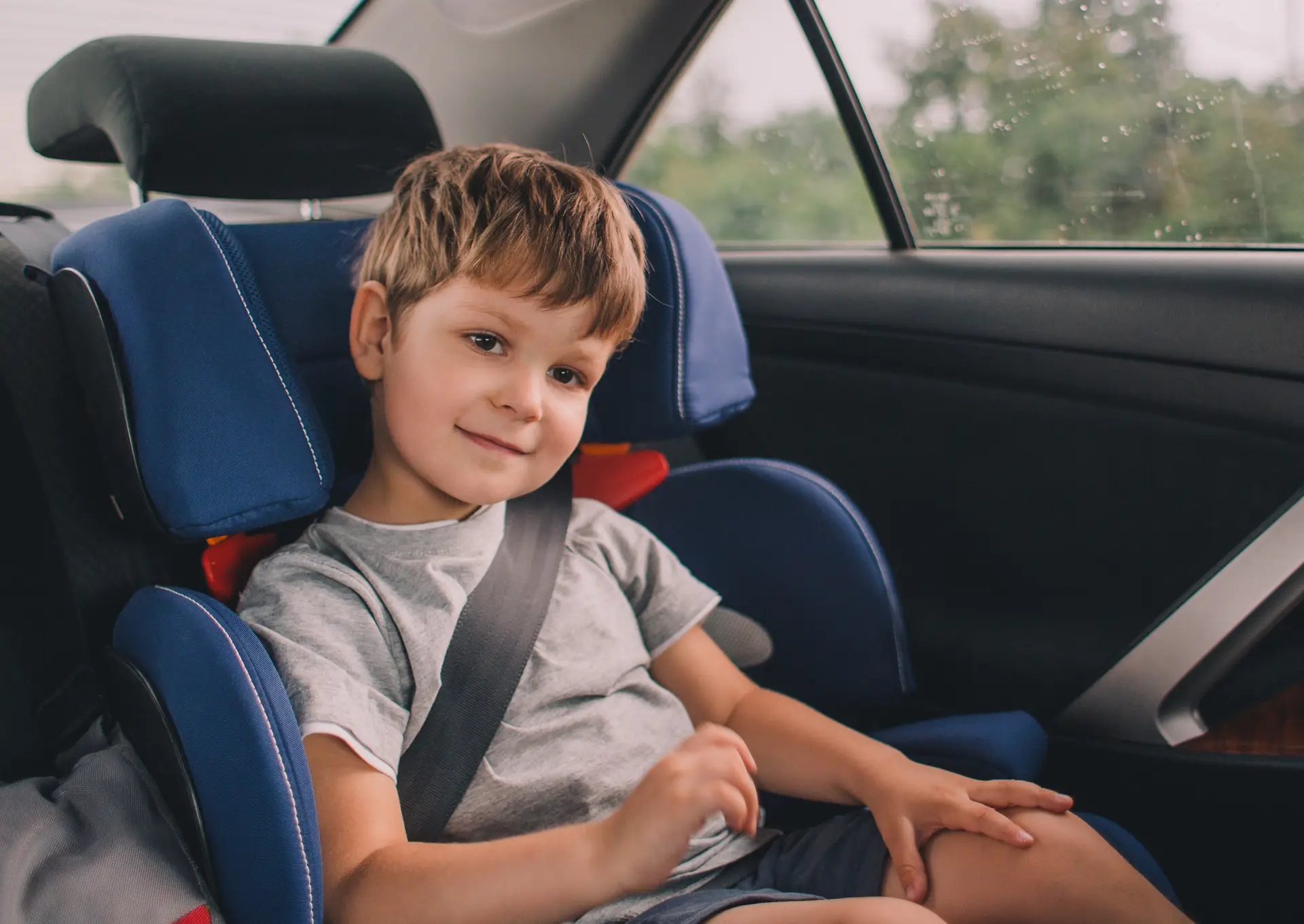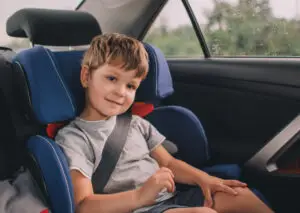Child Hot Car Deaths: Understanding the Science, Law, and Prevention
Every summer, we witness heartbreaking news stories about children dying in hot vehicles. These tragedies affect families across all backgrounds, education levels, and economic circumstances. Understanding how these incidents happen, what the law says, and how to prevent them can save lives.
The Sobering Reality of Vehicular Heatstroke
Since 1998, over 1,050 children have died from vehicular heatstroke in the United States. In 2024 alone, 29 children lost their lives this way. These deaths occur year-round, not just in summer. A child has died in a hot car in every state except Alaska and New Hampshire.
The circumstances behind these tragedies reveal important patterns. According to NoHeatStroke.org data, 56% of cases involve caregivers unknowingly leaving children in vehicles. Another 26% occur when children gain access to vehicles on their own. About 14% involve caregivers knowingly leaving children, often believing they’ll return quickly. The remaining cases have unknown circumstances.
Louisiana and Texas rank among the states with the highest rates of pediatric vehicular heatstroke deaths. Texas leads the nation with 157 deaths since 1998, while Louisiana has experienced 35 deaths during this period. The Gulf Coast’s combination of high temperatures, humidity, and year-round warm weather creates particularly dangerous conditions.
The Science Behind Vehicle Heating
Understanding the physics of vehicle heating helps explain why these tragedies occur so quickly. The greenhouse effect turns vehicles into deadly ovens faster than most people realize.
Vehicle interiors heat through a process called the greenhouse effect. Sunlight enters through windows as shortwave radiation. When it strikes surfaces inside the car, including seats, dashboard, and steering wheel, it converts to longwave infrared radiation. Glass traps this infrared radiation, causing rapid temperature buildup.
Research from San Francisco State University demonstrates the speed of this heating:
- In 10 minutes, the vehicle temperature rises approximately 19°F
- In 20 minutes, the increase reaches 29°F
- In 30 minutes, temperatures climb 34°F
- After 60 minutes, the increase can exceed 43°F
On an 80°F day, your car reaches 99°F in just 10 minutes and 114°F in 30 minutes. On a 95°F Louisiana summer day, interior temperatures can exceed 140°F within an hour. Dark-colored vehicles and those with dark interiors heat faster than light-colored ones.
Cracking windows provides minimal relief. Studies show that leaving windows down 1.5 inches reduces temperature by only 3-5°F. This insignificant difference offers no meaningful protection. The misconception about cracked windows creates false security and contributes to preventable deaths.
Why Children Are Vulnerable
Children’s bodies respond to heat differently than adults, making them particularly susceptible to heatstroke. Several physiological factors create this vulnerability.
Children’s bodies heat up three to five times faster than adults. Their surface area-to-body mass ratio is higher, meaning they absorb environmental heat more quickly. Children’s thermoregulatory systems remain underdeveloped until adolescence. They produce less sweat per gland, limiting their natural cooling ability.
Core body temperature regulation differs significantly in children. While adults begin experiencing heatstroke symptoms when core temperature reaches 104°F, children can suffer organ damage at lower temperatures. Their smaller blood volume means that dehydration occurs faster, accelerating the progression of heat-related illnesses.
Hyperthermia, or heatstroke, begins when core body temperature exceeds 104°F. At 107°F, cells begin dying, organs shut down, and death becomes likely. This process can occur within 15 minutes for infants and toddlers in extreme heat conditions.
The Legal Framework
Louisiana Law
Louisiana Revised Statute 32:295.3 specifically addresses leaving children unattended in vehicles. The law prohibits leaving children under age six unsupervised in a vehicle when:
- The vehicle’s engine is running
- The keys are in the ignition
- Health or safety circumstances pose risks
Violations constitute child endangerment under the Louisiana Children’s Code Article 1003. Penalties include:
- Fines up to $500
- Imprisonment up to six months
- Potential child protective services involvement
- Possible felony charges if injury or death occurs
Louisiana’s Good Samaritan Law (RS 14:502) provides legal protection for rescuers who break into vehicles to save children in immediate danger. The law requires attempting to locate the owner first and immediately calling 911.
Texas Law
Texas Penal Code Section 22.10 makes leaving a child under seven unattended in a vehicle for more than five minutes a Class C misdemeanor if:
- Another person 14 or older isn’t present
- Conditions present danger
Penalties include fines up to $500. If the child suffers bodily injury, charges escalate to child endangerment, a state jail felony carrying:
- 180 days to 2 years of state jail time
- Fines up to $10,000
- Potential loss of parental rights
Texas Health and Safety Code Section 74.002 provides civil immunity for rescuing children or vulnerable adults from vehicles when they reasonably believe the person faces immediate danger.
Criminal Prosecution Patterns
Prosecution decisions in hot car death cases vary significantly. Factors prosecutors consider include:
- Intent and circumstances
- Previous incidents or warnings
- Length of time the child was left
- Temperature and weather conditions
- Parents’ response and cooperation
About 50% of cases result in criminal charges. Charges range from involuntary manslaughter to murder, depending on circumstances. Cases involving drugs, alcohol, or previous warnings typically face harsher prosecution.
The Psychology of Forgotten Baby Syndrome
Memory researchers have identified specific cognitive factors contributing to these tragedies. Understanding the neuroscience helps explain how loving, attentive parents can experience such devastating lapses.
David Diamond, a neuroscientist at the University of South Florida, explains that three factors must align:
- Stress or Sleep Deprivation: Impairs prospective memory (remembering to do something in the future)
- Change in Routine: Disrupts habit memory patterns
- False Memory: The Brain creates false confirmation that the task was completed
The hippocampus (conscious memory) and basal ganglia (habit memory) compete for control of our actions. Under stress, the basal ganglia often win, causing us to follow habitual patterns even when circumstances change. Parents drive familiar routes on autopilot, with their brain falsely confirming the child was dropped at daycare.
Working memory failures compound the problem. The prefrontal cortex, responsible for planning and decision-making, becomes overwhelmed by competing demands. Parents juggling work calls, mental to-do lists, and daily stressors can experience complete memory suppression about their child’s presence.
Prevention Technologies and Strategies
Available Technology Solutions
Modern technology offers multiple solutions to prevent hot car tragedies:
Integrated Vehicle Systems: General Motors’ Rear Seat Reminder (standard on many 2017 and later models) activates door chimes when the rear doors are opened before driving. Hyundai’s Rear Occupant Alert uses ultrasonic sensors to detect movement after the vehicle locks. Nissan’s Rear Door Alert monitors rear door usage and provides both audio and visual warnings.
Aftermarket Devices: Products including Sense A Life, Driver’s Little Helper, and Cars-N-Kids systems offer various alert mechanisms. Prices range from $30 to $200. Features include proximity sensors, pressure pads, and smartphone connectivity. Some insurance companies offer discounts for using these devices.
Smartphone Apps: Kars4Kids Safety App sends alerts when you arrive at destinations. Waze provides optional child reminder notifications. These free solutions work but require consistent smartphone use and Bluetooth connectivity.
Behavioral Prevention Strategies
Technology helps, but consistent habits provide the strongest protection:
Look Before You Lock: Make it mandatory to check all seats before leaving any vehicle. Train yourself to walk completely around your vehicle. This habit takes seconds but saves lives.
Create Physical Reminders: Place your phone, purse, or employee badge in the backseat. Keep a stuffed animal in the car seat when empty, moving it to the front seat when your child occupies their seat. These visual cues trigger memory.
Establish Communication Protocols: Arrange check-in systems with childcare providers. If your child doesn’t arrive as expected, providers should call immediately. Partners should confirm drop-offs through text messages.
Never Leave Children Intentionally: Even “quick” errands prove deadly. Children have died while parents ran into stores for single items. No errand justifies the risk.
Responding to Hot Car Emergencies
If you discover a child alone in a hot vehicle, immediate action is critical:
- Assess the child’s condition: Are they responsive? Showing distress? Unconscious?
- Call 911 immediately: Provide exact location and child’s condition
- Attempt to locate the owner: Have businesses page the owner if in a parking lot
- Document the situation: Take photos or video for legal protection
- Remove the child if in distress: Break the window furthest from the child if necessary
- Cool the child gradually: Move to a shaded area or an air-conditioned room. Apply cool (not cold) water to skin. Never use ice baths, which can cause shock
Signs of heatstroke requiring immediate action include:
- High body temperature (above 103°F)
- Hot, dry skin or heavy sweating
- Rapid, strong pulse
- Confusion or unconsciousness
- Nausea or vomiting
- Seizures
Legal Considerations for Families
When tragedy strikes, families face complex legal situations beyond criminal proceedings.
Civil Liability
Daycare centers, schools, and transportation providers may bear liability for hot car deaths occurring in their custody. Negligent supervision claims arise when facilities fail to follow proper procedures. Insurance coverage varies significantly. Some auto policies exclude intentional acts, even when leaving a child was unintentional. Premises liability may apply when deaths occur in commercial parking lots lacking shade or safety measures.
Wrongful Death Claims
Louisiana Civil Code Article 2315.2 and the Texas Civil Practice and Remedies Code, Chapter 71, govern premises liability. Potential defendants include vehicle manufacturers (defective reminder systems), childcare facilities (negligent supervision), and employers (requiring actions leading to incidents).
Time limits matter. Louisiana provides one year from death to file suit. Texas allows two years. These deadlines are absolute, with few exceptions.
Product Liability
Vehicle manufacturers are facing increasing scrutiny regarding their safety technology. Current regulations don’t mandate hot car prevention systems, though legislation is pending. Families may pursue claims for:
- Defective design (lack of occupant detection systems)
- Failure to warn about heating dangers
- Malfunction of existing safety systems
The aftermath of losing a child to vehicular heatstroke devastates families emotionally and financially. Understanding your legal rights while processing grief feels impossible. Legal representation helps families navigate insurance claims, criminal proceedings, and potential civil actions while focusing on healing.
Moving Forward: A Community Responsibility
Preventing hot car deaths requires community-wide vigilance. Everyone can help:
Parking Lot Vigilance: Make checking nearby vehicles a habit. If you see a child alone, act immediately. Your intervention could save a life.
Spread Awareness: Share prevention information with new parents, grandparents, and caregivers. Many people don’t understand how quickly vehicles heat up.
Support Technology: Advocate for mandatory rear-seat detection systems in new vehicles. Contact legislators about pending safety legislation.
Extend Compassion: Families experiencing these tragedies need support, not judgment. These incidents can happen to anyone.
Contact Morris & Dewett Injury Lawyers
If your family has experienced injury or loss related to a hot car incident, you need experienced legal guidance. Whether dealing with criminal charges, insurance disputes, or potential civil claims, we provide compassionate representation during your most difficult time.
Contact us for a confidential consultation. We’ll explain your rights, investigate all potential claims, and handle legal complexities while you focus on your family. With offices serving Louisiana and Texas, we understand the specific laws affecting your case.
Remember: checking your vehicle takes seconds. That simple habit could prevent unimaginable tragedy. Make it automatic. Make it mandatory. Make it matter.





